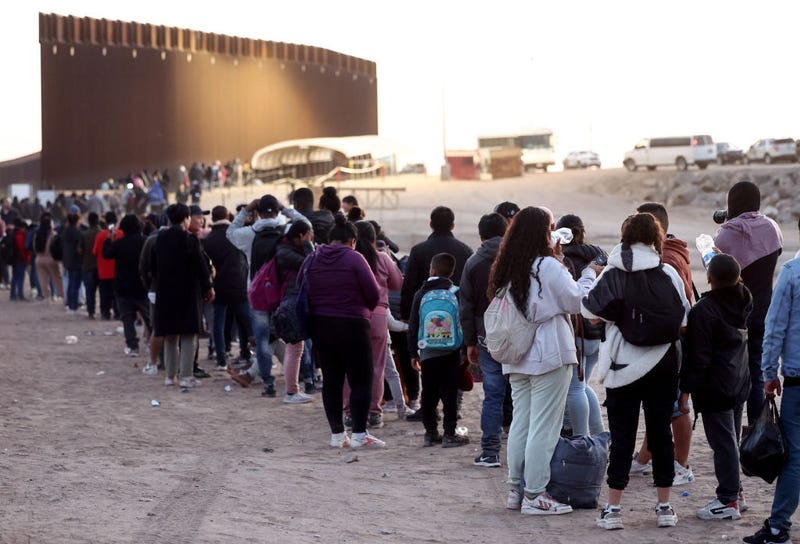
A federal judge has blocked the Biden administration's plan for a mass release of migrants from Border Patrol custody.
The release was set to take place with the end of the Trump-era Title 42 public health order, which allowed the federal government turn away migrants seeking asylum at the border due to the threat of COVID-19. The policy expired at midnight Thursday.
The end of Title 42 has caused cities along the border to declare emergencies because they're expecting waves of people seeking asylum. U.S. Customs and Border Patrol said they were preparing for up to 10,000 migrants a day.
The Biden administration on Wednesday sought to alleviate overcrowding at Border Patrol detention centers by issuing a directive to the Department of Homeland Security to release migrants arriving at the border on a case-by-case basis into the U.S. on "parole," without notices to appear in court but on the condition they must schedule an appointment at an Immigration and Customs Enforcement office within 60 days for further processing.
The Florida Attorney General filed an emergency motion for a temporary restraining order on the policy, noting it was similar to one struck down earlier this year that was ruled unconstitutional. Hours before Title 42 expired, a federal judge agreed and granted the restraining order, blocking the migrant release.
In the ruling, District Judge T. Kent Wetherell noted that the "Southwest Border has been out of control for the past 2 years and it is about to get worse" with Title 42 expiring.
"Putting aside the fact that even President Biden recently acknowledged that the border has been in chaos for 'a number of years,' Defendants' doomsday rhetoric rings hollow because... this problem is largely one of Defendants' own making through the adoption an implementation of policies that have encouraged the so-called 'irregular migration' that has become fairly regular over the past 2 years,” Wetherell wrote in the 17-page opinion.
Wetherell said he "fails to see a material difference" between the parole policy and the one struck down in March, which allowed the release of migrants without court dates.
"In both instances, aliens are being released into the country on an expedited basis without being placed in removal proceedings and with little to no vetting and no monitoring," he wrote.
The judge said the policy also "does not reflect any consideration of the additional backlog that will likely be created by releasing aliens into the country without initiating immigration proceedings and then having to track
them down to do so if they do not report to ICE."
"DHS's decision to 'parole' aliens into the country without first initiating immigration proceedings is precisely what the Court told DHS it could not lawfully do," Wetherell added. "What DHS cannot do is adopt a functionally identical policy as the one the Court vacated in the Florida decision and then expect a different outcome when that policy is challenged."
The restraining order will remain in effect for two weeks. The judge also set an injunction hearing for May 19.
The Biden administration is expected to appeal the ruling.


